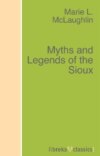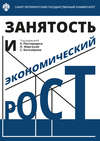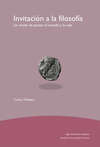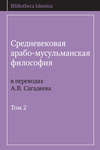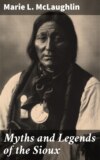Buch lesen: «Myths and Legends of the Sioux»
Titel: Myths and Legends of the Sioux
von Scott Hemphill, L. M. Montgomery, L. Frank Baum, John Milton, René Descartes, Baroness Emmuska Orczy Orczy, Karl Marx, Friedrich Engels, Edgar Rice Burroughs, Unknown, Norman F. Joly, Norman Coombs, David Slowinski, Mark Twain, Henry David Thoreau, Stephen Crane, John Goodwin, Nathaniel Hawthorne, Winn Schwartau, Odd De Presno, Sir Walter Scott, Jules Verne, Mary Wollstonecraft Shelley, United States. Central Intelligence Agency, United States, Canada, Willa Sibert Cather, Anthony Hope, Edwin Abbott Abbott, Charles Dickens, Frederick Douglass, William Shakespeare, Bruce Sterling, Franklin Delano Roosevelt, Jane Austen, Thomas Hardy, Sir Arthur Conan Doyle, Edna St. Vincent Millay, Gene Stratton-Porter, Richard McGowan, Frances Hodgson Burnett, United States. Bureau of the Census, Electronic Frontier Foundation, Robert Louis Stevenson, Anonymous, Jerry Bonnell, Robert Nemiroff, Andrew Lang, G. K. Chesterton, John Bunyan, Sunzi 6th cent. B.C., Harold Frederic, Mary Wollstonecraft, Victor Hugo, René Doumic, Upton Sinclair, Virginia Woolf, George Eliot, Thomas Paine, Benjamin Franklin, Plato, Samuel Taylor Coleridge, Ruth M. Sprague, William Dean Howells, Wilkie Collins, Jean Webster, H. G. Wells, Kate Chopin, Mark Eliot Laxer, Louisa May Alcott, Frank Norris, Edith Wharton, S. D. Humphrey, Henry Hunt Snelling, William Morris, Mrs. Susanna Rowson, Christopher Morley, Sax Rohmer, Oscar Wilde, Gaston Leroux, Henry James, Project Gutenberg, Harriet Beecher Stowe, Various, Robert W. Service, A. B. Paterson, Henry Lawson, Jack London, Laozi, D. H. Lawrence, Julius Caesar, Joseph Conrad, W. Somerset Maugham, George MacDonald, Marcus Tullius Cicero, Virgil, Theodore Dreiser, Giuseppe Salza, Rudyard Kipling, ca. 50 BCE-16 BCE Sextus Propertius, Robert A. Harris, William Wells Brown, graf Leo Tolstoy, Omar Khayyám, Michael Hart, Library of Congress. Copyright Office, Coalition for Networked Information, Geoffrey Chaucer, Adam Lindsay Gordon, Hiram Corson, Robert Browning, Amy Lowell, Rupert Brooke, Joyce Kilmer, John Gower, Saki, Kenneth Grahame, Anna Sewell, Martin Luther, Philipp Melanchthon, National Atomic Museum, Alexander William Kinglake, Charles John Cutcliffe Wright Hyne, Amelia Edith Huddleston Barr, James Branch Cabell, Bayard Taylor, Horatio Alger, Booth Tarkington, Hjalmar Hjorth Boyesen, Michael Husted, Émile Gaboriau, Jerome K. Jerome, Stephen Vincent Benét, Edwin Arlington Robinson, J. Frank Dobie, Joseph Rodman Drake, Eliot Gregory, John Fox, John Muir, Richard Harding Davis, Edgar A. Guest, Mary Roberts Rinehart, Thomas Nelson Page, Sir Walter Alexander Raleigh, Rebecca Harding Davis, Charles Alexander Eastman, Zitkala-Sa, Marie L. McLaughlin
ISBN 978-3-7429-0302-0
Alle Rechte vorbehalten.
Es ist ohne vorherige schriftliche Erlaubnis nicht gestattet, dieses Werk im Ganzen oder in Teilen zu vervielfältigen oder zu veröffentlichen.
MYTHS AND LEGENDS OF THE SIOUX
By Mrs. Marie L. Mclaughlin
In loving memory of my mother,
MARY GRAHAM BUISSON,
at whose knee most of the stories
contained in this little volume
were told to me, this book is
affectionately dedicated
Contents
| FOREWORD THE FORGOTTEN EAR OF CORN THE LITTLE MICE THE PET RABBIT THE PET DONKEY THE RABBIT AND THE ELK THE RABBIT AND THE GROUSE GIRLS THE FAITHFUL LOVERS THE ARTICHOKE AND THE MUSKRAT THE RABBIT AND THE BEAR WITH THE FLINT BODY STORY OF THE LOST WIFE THE RACCOON AND THE CRAWFISH LEGEND OF STANDING ROCK STORY OF THE PEACE PIPE A BASHFUL COURTSHIP THE SIMPLETON'S WISDOM A LITTLE BRAVE AND THE MEDICINE WOMAN THE BOUND CHILDREN THE SIGNS OF CORN STORY OF THE RABBITS HOW THE RABBIT LOST HIS TAIL UNKTOMI AND THE ARROWHEADS THE BEAR AND THE RABBIT HUNT BUFFALO THE BRAVE WHO WENT ON THE WARPATH ALONE AND WON THE NAME OF THE LONE WARRIOR THE SIOUX WHO MARRIED THE CROW CHIEF'S DAUGHTER THE BOY AND THE TURTLES THE HERMIT, OR THE GIFT OF CORN THE MYSTERIOUS BUTTE THE WONDERFUL TURTLE THE MAN AND THE OAK STORY OF THE TWO YOUNG FRIENDS THE STORY OF THE PET CROW THE "WASNA" (PEMMICAN) MAN AND THE UNKTOMI (SPIDER) THE RESUSCITATION OF THE ONLY DAUGHTER THE STORY OF THE PET CRANE WHITE PLUME STORY OF PRETTY FEATHERED FOREHEAD THE FOUR BROTHERS OR INYANHOKSILA (STONE BOY) THE UNKTOMI (SPIDER), TWO WIDOWS, AND THE RED PLUMS |
FOREWORD
In publishing these "Myths of the Sioux," I deem it proper to state that I am of one-fourth Sioux blood. My maternal grandfather, Captain Duncan Graham, a Scotchman by birth, who had seen service in the British Army, was one of a party of Scotch Highlanders who in 1811 arrived in the British Northwest by way of York Factory, Hudson Bay, to found what was known as the Selkirk Colony, near Lake Winnipeg, now within the province of Manitoba, Canada. Soon after his arrival at Lake Winnipeg he proceeded up the Red River of the North and the western fork thereof to its source, and thence down the Minnesota River to Mendota, the confluence of the Minnesota and Mississippi Rivers, where he located. My grandmother, Ha-za-ho-ta-win, was a full-blood of the Medawakanton Band of the Sioux Tribe of Indians. My father, Joseph Buisson, born near Montreal, Canada, was connected with the American Fur Company, with headquarters at Mendota, Minnesota, which point was for many years the chief distributing depot of the American Fur Company, from which the Indian trade conducted by that company on the upper Mississippi was directed.
I was born December 8, 1842, at Wabasha, Minnesota, then Indian country, and resided thereat until fourteen years of age, when I was sent to school at Prairie du Chien, Wisconsin.
I was married to Major James McLaughlin at Mendota, Minnesota, January 28, 1864, and resided in Minnesota until July 1, 1871, when I accompanied my husband to Devils Lake Agency, North Dakota, then Dakota Territory, where I remained ten years in most friendly relations with the Indians of that agency. My husband was Indian agent at Devils Lake Agency, and in 1881 was transferred to Standing Rock, on the Missouri River, then a very important agency, to take charge of the Sioux who had then but recently surrendered to the military authorities, and been brought by steamboat from various points on the upper Missouri, to be permanently located on the Standing Rock reservation.
Having been born and reared in an Indian community, I at an early age acquired a thorough knowledge of the Sioux language, and having lived on Indian reservations for the past forty years in a position which brought me very near to the Indians, whose confidence I possessed, I have, therefore, had exceptional opportunities of learning the legends and folk-lore of the Sioux.
The stories contained in this little volume were told me by the older men and women of the Sioux, of which I made careful notes as related, knowing that, if not recorded, these fairy tales would be lost to posterity by the passing of the primitive Indian.
The notes of a song or a strain of music coming to us through the night not only give us pleasure by the melody they bring, but also give us knowledge of the character of the singer or of the instrument from which they proceed. There is something in the music which unerringly tells us of its source. I believe musicians call it the "timbre" of the sound. It is independent of, and different from, both pitch and rhythm; it is the texture of the music itself.
The "timbre" of a people's stories tells of the qualities of that people's heart. It is the texture of the thought, independent of its form or fashioning, which tells the quality of the mind from which it springs.
In the "timbre" of these stories of the Sioux, told in the lodges and at the camp fires of the past, and by the firesides of the Dakotas of today, we recognize the very texture of the thought of a simple, grave, and sincere people, living in intimate contact and friendship with the big out-of-doors that we call Nature; a race not yet understanding all things, not proud and boastful, but honest and childlike and fair; a simple, sincere, and gravely thoughtful people, willing to believe that there may be in even the everyday things of life something not yet fully understood; a race that can, without any loss of native dignity, gravely consider the simplest things, seeking to fathom their meaning and to learn their lesson—equally without vain-glorious boasting and trifling cynicism; an earnest, thoughtful, dignified, but simple and primitive people.
To the children of any race these stories can not fail to give pleasure by their vivid imaging of the simple things and creatures of the great out-of-doors and the epics of their doings. They will also give an intimate insight into the mentality of an interesting race at a most interesting stage of development, which is now fast receding into the mists of the past.
MARIE L. McLAUGHLIN (Mrs. James McLaughlin).
McLaughlin, S. D., May 1, 1913.
THE FORGOTTEN EAR OF CORN
An Arikara woman was once gathering corn from the field to store away for winter use. She passed from stalk to stalk, tearing off the ears and dropping them into her folded robe. When all was gathered she started to go, when she heard a faint voice, like a child's, weeping and calling:
"Oh, do not leave me! Do not go away without me."
The woman was astonished. "What child can that be?" she asked herself. "What babe can be lost in the cornfield?"
She set down her robe in which she had tied up her corn, and went back to search; but she found nothing.
As she started away she heard the voice again:
"Oh, do not leave me. Do not go away without me."
She searched for a long time. At last in one corner of the field, hidden under the leaves of the stalks, she found one little ear of corn. This it was that had been crying, and this is why all Indian women have since garnered their corn crop very carefully, so that the succulent food product should not even to the last small nubbin be neglected or wasted, and thus displease the Great Mystery.
THE LITTLE MICE
Once upon a time a prairie mouse busied herself all fall storing away a cache of beans. Every morning she was out early with her empty cast-off snake skin, which she filled with ground beans and dragged home with her teeth.
The little mouse had a cousin who was fond of dancing and talk, but who did not like to work. She was not careful to get her cache of beans and the season was already well gone before she thought to bestir herself. When she came to realize her need, she found she had no packing bag. So she went to her hardworking cousin and said:
"Cousin, I have no beans stored for winter and the season is nearly gone. But I have no snake skin to gather the beans in. Will you lend me one?"
"But why have you no packing bag? Where were you in the moon when the snakes cast off their skins?"
"I was here."
"What were you doing?"
"I was busy talking and dancing."
"And now you are punished," said the other. "It is always so with lazy, careless people. But I will let you have the snake skin. And now go, and by hard work and industry, try to recover your wasted time."
THE PET RABBIT
A little girl owned a pet rabbit which she loved dearly. She carried it on her back like a babe, made for it a little pair of moccasins, and at night shared with it her own robe.
Now the little girl had a cousin who loved her very dearly and wished to do her honor; so her cousin said to herself:
"I love my little cousin well and will ask her to let me carry her pet rabbit around;" (for thus do Indian women when they wish to honor a friend; they ask permission to carry about the friend's babe).
She then went to the little girl and said:
"Cousin, let me carry your pet rabbit about on my back. Thus shall I show you how I love you."
Her mother, too, said to her: "Oh no, do not let our little grandchild go away from our tepee."
But the cousin answered: "Oh, do let me carry it. I do so want to show my cousin honor." At last they let her go away with the pet rabbit on her back.
When the little girl's cousin came home to her tepee, some rough boys who were playing about began to make sport of her. To tease the little girl they threw stones and sticks at the pet rabbit. At last a stick struck the little rabbit upon the head and killed it.
When her pet was brought home dead, the little rabbit's adopted mother wept bitterly. She cut off her hair for mourning and all her little girl friends wailed with her. Her mother, too, mourned with them.
"Alas!" they cried, "alas, for the little rabbit. He was always kind and gentle. Now your child is dead and you will be lonesome."
The little girl's mother called in her little friends and made a great mourning feast for the little rabbit. As he lay in the tepee his adopted mother's little friends brought many precious things and covered his body. At the feast were given away robes and kettles and blankets and knives and great wealth in honor of the little rabbit. Him they wrapped in a robe with his little moccasins on and buried him in a high place upon a scaffold.
THE PET DONKEY
There was a chief's daughter once who had a great many relations so that everybody knew she belonged to a great family.
When she grew up she married and there were born to her twin sons. This caused great rejoicing in her father's camp, and all the village women came to see the babes. She was very happy.
As the babes grew older, their grandmother made for them two saddle bags and brought out a donkey.
"My two grandchildren," said the old lady, "shall ride as is becoming to children having so many relations. Here is this donkey. He is patient and surefooted. He shall carry the babes in the saddle bags, one on either side of his back."
It happened one day that the chief's daughter and her husband were making ready to go on a camping journey. The father, who was quite proud of his children, brought out his finest pony, and put the saddle bags on the pony's back.
"There," he said, "my sons shall ride on the pony, not on a donkey; let the donkey carry the pots and kettles."
So his wife loaded the donkey with the household things. She tied the tepee poles into two great bundles, one on either side of the donkey's back; across them she put the travois net and threw into it the pots and kettles and laid the skin tent across the donkey's back.
But no sooner done than the donkey began to rear and bray and kick. He broke the tent poles and kicked the pots and kettles into bits and tore the skin tent. The more he was beaten the more he kicked.
At last they told the grandmother. She laughed. "Did I not tell you the donkey was for the children," she cried. "He knows the babies are the chief's children. Think you he will be dishonored with pots and kettles?" and she fetched the children and slung them over the donkey's back, when he became at once quiet again.
The camping party left the village and went on their journey. But the next day as they passed by a place overgrown with bushes, a band of enemies rushed out, lashing their ponies and sounding their war whoop. All was excitement. The men bent their bows and seized their lances. After a long battle the enemy fled. But when the camping party came together again—where were the donkey and the two babes? No one knew. For a long time they searched, but in vain. At last they turned to go back to the village, the father mournful, the mother wailing. When they came to the grandmother's tepee, there stood the good donkey with the two babes in the saddle bags.
THE RABBIT AND THE ELK
The little rabbit lived with his old grandmother, who needed a new dress. "I will go out and trap a deer or an elk for you," he said. "Then you shall have a new dress."
When he went out hunting he laid down his bow in the path while he looked at his snares. An elk coming by saw the bow.
"I will play a joke on the rabbit," said the elk to himself. "I will make him think I have been caught in his bow string." He then put one foot on the string and lay down as if dead.
By and by the rabbit returned. When he saw the elk he was filled with joy and ran home crying: "Grandmother, I have trapped a fine elk. You shall have a new dress from his skin. Throw the old one in the fire!"
This the old grandmother did.
The elk now sprang to his feet laughing. "Ho, friend rabbit," he called, "You thought to trap me; now I have mocked you." And he ran away into the thicket.
The rabbit who had come back to skin the elk now ran home again. "Grandmother, don't throw your dress in the fire," he cried. But it was too late. The old dress was burned.
THE RABBIT AND THE GROUSE GIRLS
The rabbit once went out on the prairie in winter time. On the side of a hill away from the wind he found a great company of girls all with grey and speckled blankets over their backs. They were the grouse girls and they were coasting down hill on a board. When the rabbit saw them, he called out:
"Oh, maidens, that is not a good way to coast down hill. Let me get you a fine skin with bangles on it that tinkle as you slide." And away he ran to the tepee and brought a skin bag. It had red stripes on it and bangles that tinkled. "Come and get inside," he said to the grouse girls. "Oh, no, we are afraid," they answered. "Don't be afraid, I can't hurt you. Come, one of you," said the rabbit. Then as each hung back he added coaxingly: "If each is afraid alone, come all together. I can't hurt you all." And so he coaxed the whole flock into the bag. This done, the rabbit closed the mouth of the bag, slung it over his back and came home. "Grandmother," said he, as he came to the tepee, "here is a bag full of game. Watch it while I go for willow sticks to make spits."
But as soon as the rabbit had gone out of the tent, the grouse girls began to cry out:
"Grandmother, let us out."
"Who are you?" asked the old woman.
"Your dear grandchildren," they answered.
"But how came you in the bag?" asked the old woman.
"Oh, our cousin was jesting with us. He coaxed us in the bag for a joke. Please let us out."
"Certainly, dear grandchildren, I will let you out," said the old woman as she untied the bag: and lo, the grouse flock with achuck-a-chuck-achuck flew up, knocking over the old grandmother and flew out of the square smoke opening of the winter lodge. The old woman caught only one grouse as it flew up and held it, grasping a leg with each hand.
When the rabbit came home with the spits she called out to him:
"Grandson, come quick. They got out but I have caught two."
When he saw what had happened he was quite angry, yet could not keep from laughing.
"Grandmother, you have but one grouse," he cried, "and it is a very skinny one at that."
